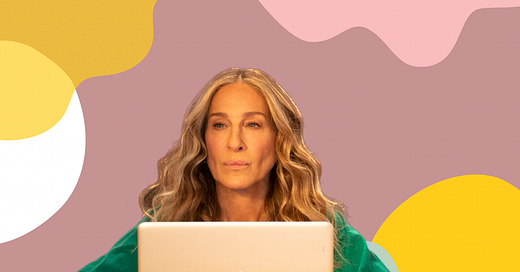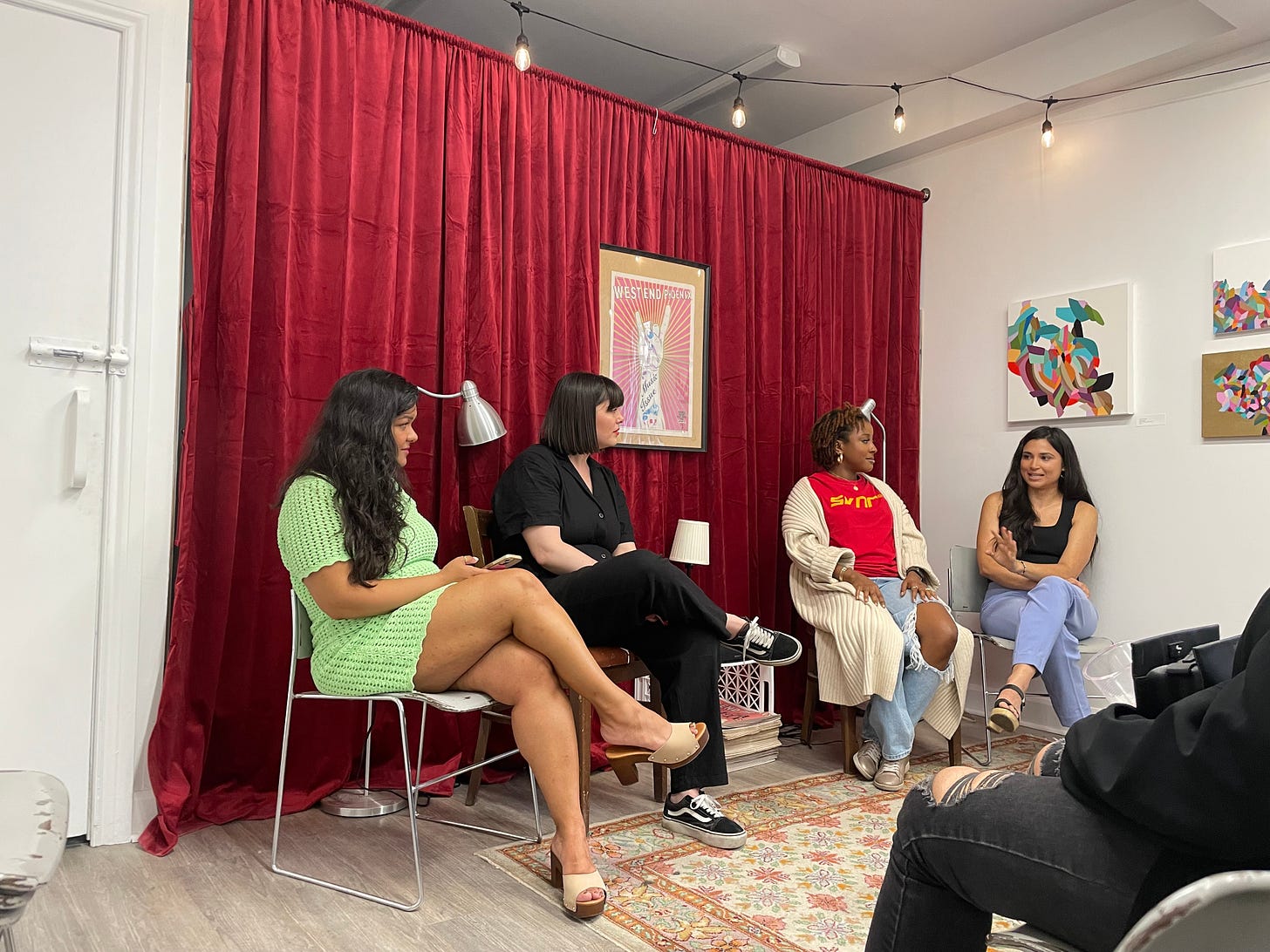I am STRESSED.
Last week the LA Times laid off 13% of its journalists (74 positions across its newsroom). This kind of news is par for the course at this point but it doesn’t feel any less shitty every time you see that flurry of tweets from your colleagues announcing their (often unceremonious) job losses and where you can find them going forward.
The night of the LA Times news, I’m scrolling through Twitter when I come across a New York Times article featuring two smiling white women, who looked the very picture of girl boss realness.
The headline: “They’re here to save indie media.”
I click the link and as I wait to find out whether or not I’ve read all my free articles for the month, my mind races to try and figure out what they could be working on … a new kind of subscription model? Maybe a collective of some kind? A writer fund? Some yet untapped venture funding source?
Media these days is a hell hole, as we know. Jobs are disappearing (and have been for years), layoffs abound, and companies like Netflix are exploiting frustrated journalists who are willing to give up traditional journalism for a chance at better pay and some job stability.
Then there’s people like me — who have cobbled together a career between years of freelancing alongside fairly consistent contract work, while watching half my colleagues switch to PR and comms jobs because they need to pay rent and this is Toronto.
Yet somehow I still find myself feeling romantic about journalism. I can’t tell you how many times I’ve questioned my own sense of self because surely only a person with no dignity, who hates money and enjoys having to pimp themselves out regularly in the hopes that a publication will want them, would continue on the soul-crushing hamster wheel that is freelance writing.
Media companies are the one-night stand that sneaks out the morning after a fantastic night, doesn’t check to make sure you’re okay the next day and may or may not call you ever again.
And yet the repeated rejection is what keeps you coming back, keeps you wanting more, keeps you figuring out ways to work harder, smarter.
I swear these companies know about my daddy issues and are intentionally fucking with me because HOW are they so good at rousing my fondness for pursuing emotionally unavailable people who don’t really care about you?
I could spend time on a deeper exploration of the industry’s most recent breakdown and what’s next, but lots of smart people (who actually know what they’re talking about) already have. Read here and here.
The one thing that has made itself abundantly clear to me is that when it comes to retaining talent in media, people need to be paid and they need to be paid fairly. Which brings me back to that NYT piece.
The two women being profiled have started a new online publication called Byline. I’m reading about their history — Gutes Guterman and Megan O’Sullivan are responsible for the popular pandemic print paper The Drunken Canal, that Vogue called “downtown New York’s paper of record for gossip” — and then halfway down my heart stops.
“For now, contributors to Byline will be unpaid, but Ms. Guterman and Ms. O’Sullivan said they had been in talks with possible sponsors including the furniture company Knoll, the astrology app Co-Star and the kink-friendly dating app Feeld. Wearing an emerald maxi dress and nude Gucci slides, Ms. Guterman clapped her hands…”
And there it is.
A splashy profile of two privileged white women who started a publication where they don’t pay writers and don’t yet have a plan on how they will. They’ve secured an incredible advisory board (including Ben Dietz, a former longtime executive at Vice Media) and a solid list of contributors like the Washington Post’s Taylor Lorenz, some of whom have defended the lack of payment. Shame. Y’all know better, but then again these are people who can afford to work for free.
And this is how privilege works in elite media — why are they being profiled for essentially starting a blog with their friends? And how is this saving media?
According to O’Sullivan, what young writers need is “a place that feels informal and fun and champions the individual.”
No. What young writers need is money. And mentors. And jobs. And benefits. And employers who are invested in their growth.
Listen, Byline is a cute website and it’s got really great stories. The problem is that they’ve been awarded corporate legitimacy and the bizarre recognition of saving indie media— just for trying, and for trying in a way that runs so afoul of what’s so badly needed in today’s industry.
Guterman and O’Sullivan probably mean well, but we’re well passed the point where that matters. The hyperbole in the headline aside, it’s a dangerous message for legacy media to be suggesting that what the industry needs is more unpaid work.
Girl boss media is not the answer to journalism’s problems, and no one knows and feels that better than racialized journalists.
Many of you know that for the last four years I’ve been building Sisimag. What you might not know is the reason why we’ve only been able to publish so many issues is because we simply can’t afford to. Like lots of other indie mags, funding is everything and I made a promise that I would only ever publish if we could pay all our contributors fairly. It’s been a long road but I think we’re getting there! (More exciting magazine news to come.)
Last week, my friend Stacy Lee Kong who is an amazing writer and editor-in-chief of Friday Things, a media brand for progressive millennials and Gen Zers, put together a panel discussion (including yours truly) titled “The future of media is independent.”
Truer words have never been spoken and it was beautiful to be in a room full of people who truly believe in creating a sustainable future for this industry.
Moments and relationships like this are what really make it all feel worth it even on the days when everything stinks and I am unendingly grateful for them.
As for the future of this noble vocation, we’ll have to stay tuned I guess.
Yours in solidarity,
Tayo







Only a year late to this piece, but good lord, have you nailed it. Thank you for writing it.